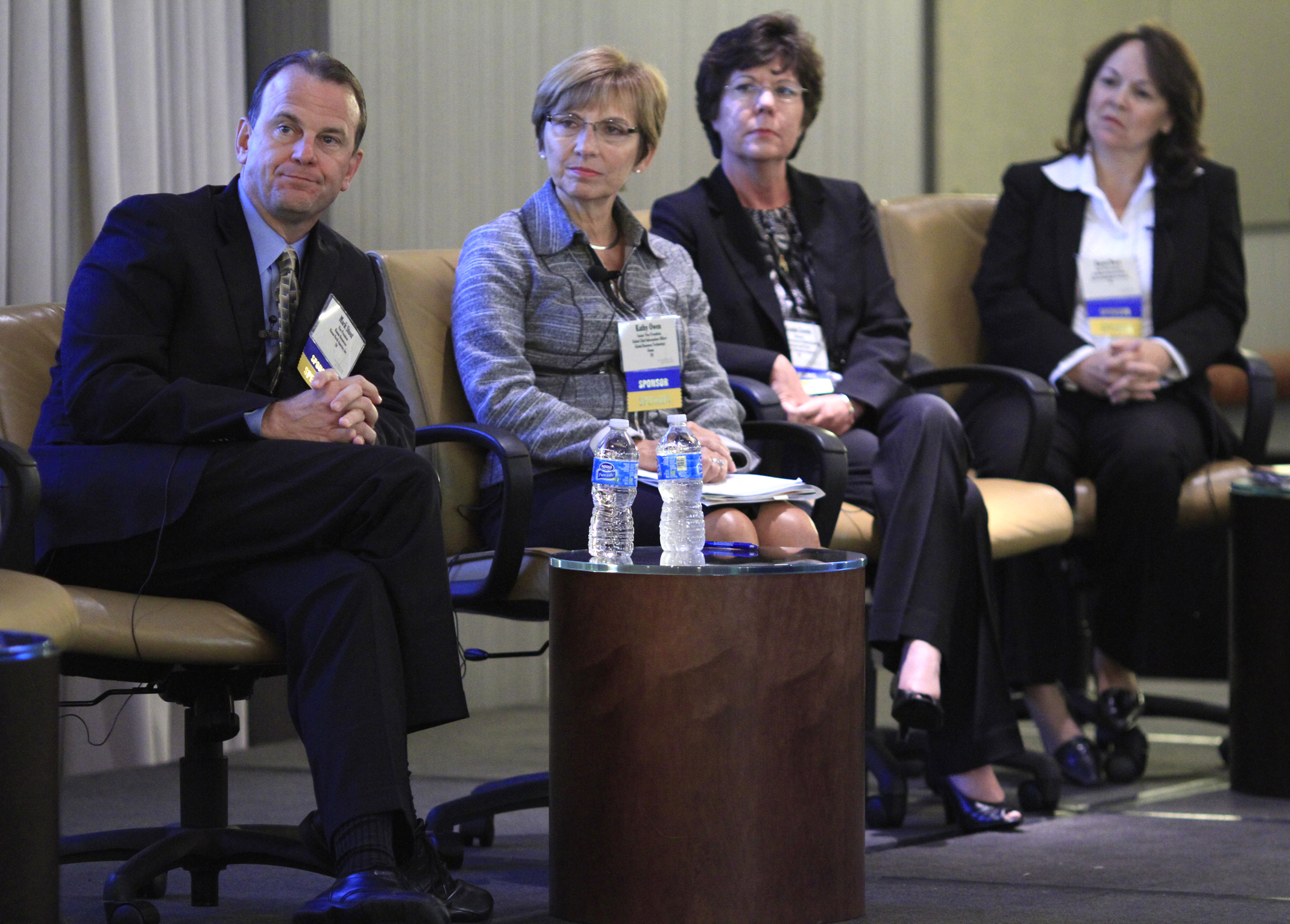RELATED STORY
'Soft' skills, STEM education called musts in workforce
It could be time to ditch the bachelor's in basketweaving and toss out the master's in medieval literature.
The work force of tomorrow needs to know how to program a robot, weld steel and do math, business leaders said Monday at a meeting of the Southern Growth Policies Board.
There are plenty of jobs available right now for those with the right skills -- the problem is, graduates today don't have those skills, officials said.
"We are always short on nurses," said Karen Ward, senior vice president and chief human resources officer at Chattanooga-based health insurer BlueCross BlueShield of Tennessee. "Just over the next year, we are looking at hiring 200 to 300 nurses."
Skilled engineers are also in short supply, employers said. But according to the U.S. Department of Education, more than a third of graduates emerge from college with general business, social science or education degrees.
"The misalignment of curriculum with jobs is an issue we've heard," said Todd Greene, vice president and community affairs officer for the Federal Reserve Bank of Atlanta.
In fact, 43 percent of high-school students who earn a license or certificate actually make more money than students with a traditional associate's degree, said Nicole Smith, senior economist at Georgetown University.
"We know it's not all about a B.A. -- certificates matter and certifications matter," Smith said.
According to Smith's figures, 27 percent of workers with licenses or certifications make more than those who have earned a bachelor's degree, demonstrating the demand in the workplace for technical skills.
"It's better to get a C in chemistry than an A in literature," Smith said.
Hans-Herbert Jagla, executive vice president for human resources for Volkswagen in Chattanooga, said finding workers with both technical skills and people skills was proving more difficult than predicted.
ABOUT THE BOARD
Southern Growth Policies Board is a non-partisan public policy think tank based in Research Triangle Park in North Carolina. Formed by the region's governors in 1971, it develops and advances visionary economic development policies.
"We can find highly educated people, we can find low-educated people, but the middle-educated people, we are struggling to hire them," Jagla said. "In manufacturing, you have to be able to calculate things -- and express yourself."
While Volkswagen had few problems finding and training the first wave of workers, a higher-than-expected attrition rate has made finding replacements a challenge.
"On a sustainable basis, we have to work on this," Jagla said.
Tennessee Gov. Bill Haslam, who brought the group to Chattanooga as chairman of the Southern Growth Policies Board, said he hopes to begin tackling the structural problems in state education within a year.
"We're no longer the dominant nation when it comes to a trained work force," Haslam said. "The skill set required has gone up for all jobs."
Haslam plans over the next year to bring together both the heads of all state education institutions and Tennessee's business leaders to devise the curriculum changes needed to grow jobs.
"We have a greater demand for a trained, technical work force than we have supply," Haslam said. "This change is not incremental, it's monumental."
That's why it's key for business and education leaders to set the curriculum together, he said.
Haslam hopes to avoid a problem that has been well publicized nationwide -- companies unable to find the right skill sets at a reasonable salary often open up offices, research labs and technology centers overseas where skilled engineers are a dime a dozen.
Kathy Owen, senior vice president and global chief information officer for Chattanooga-based Unum, said the disability insurer wanted to keep jobs in the U.S. but couldn't fill technical positions fast enough.
So five years ago, the company added a European office for technology professionals.
"We went to Ireland to develop this technology center," Owen said. "We couldn't add technology people fast enough here, so we found ourselves going offshore -- outsourcing."
The training challenge is magnified by the "millennial" generation's expectations, which are wildly different from their parents,' said Mark Stout, vice president for human resources at Nissan North America.
In exchange for the increased demands placed upon them by employers, millennial are extracting their own concessions.
"They want to have flexibility in their lifestyle -- a work/life balance," Stout said. "Twelve hours a day? No, thank you. We've having to open the flexibility gates up."
